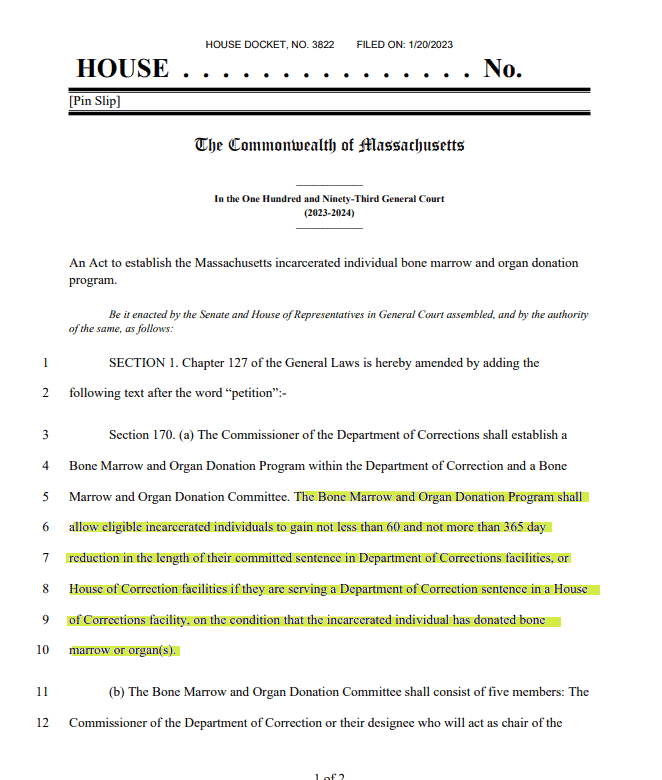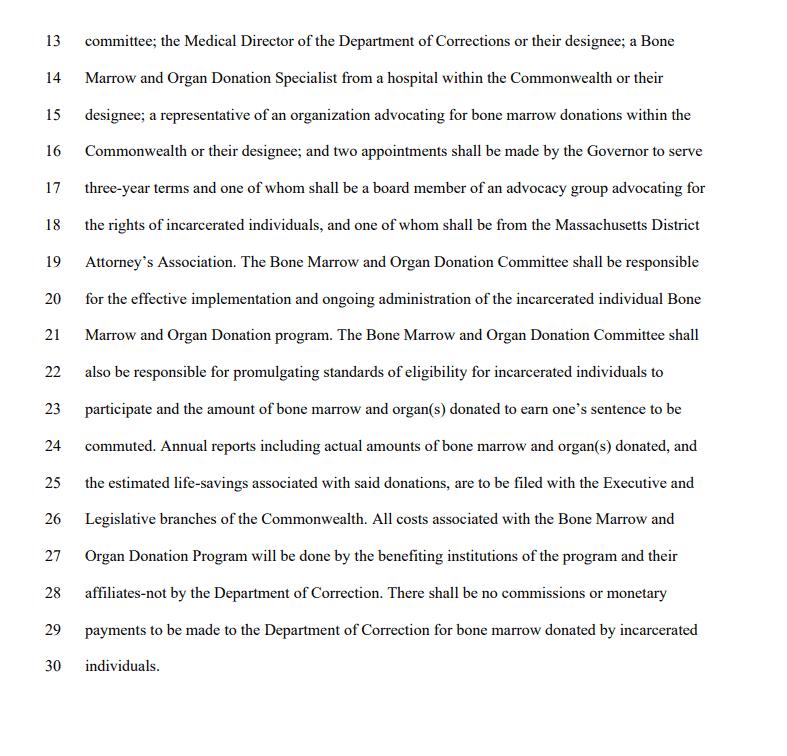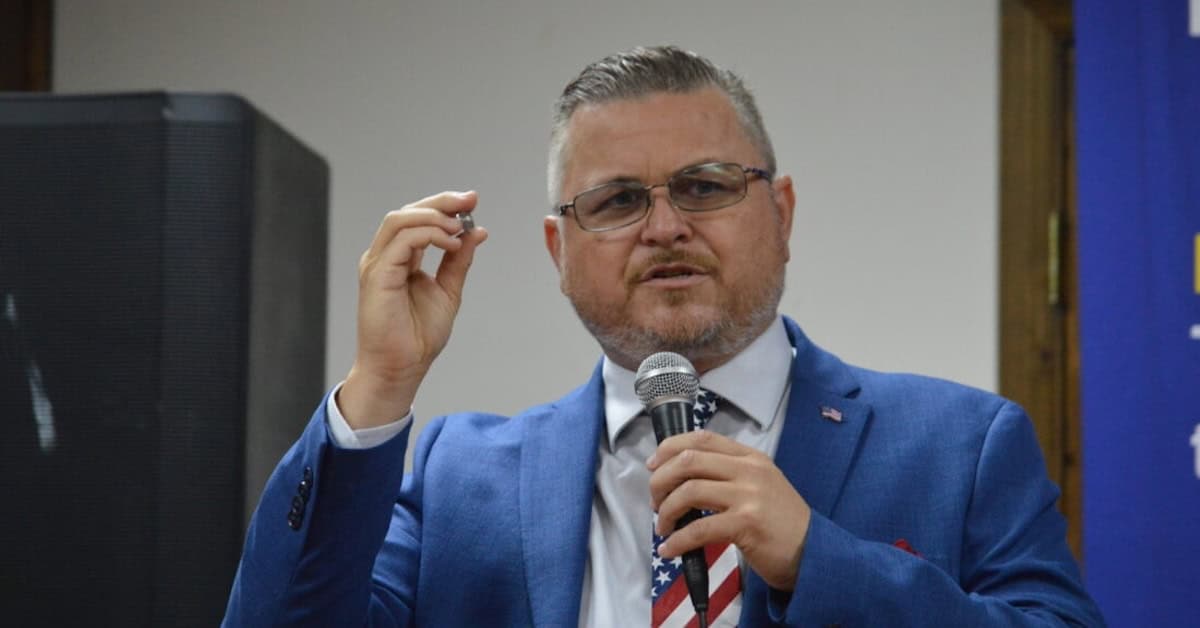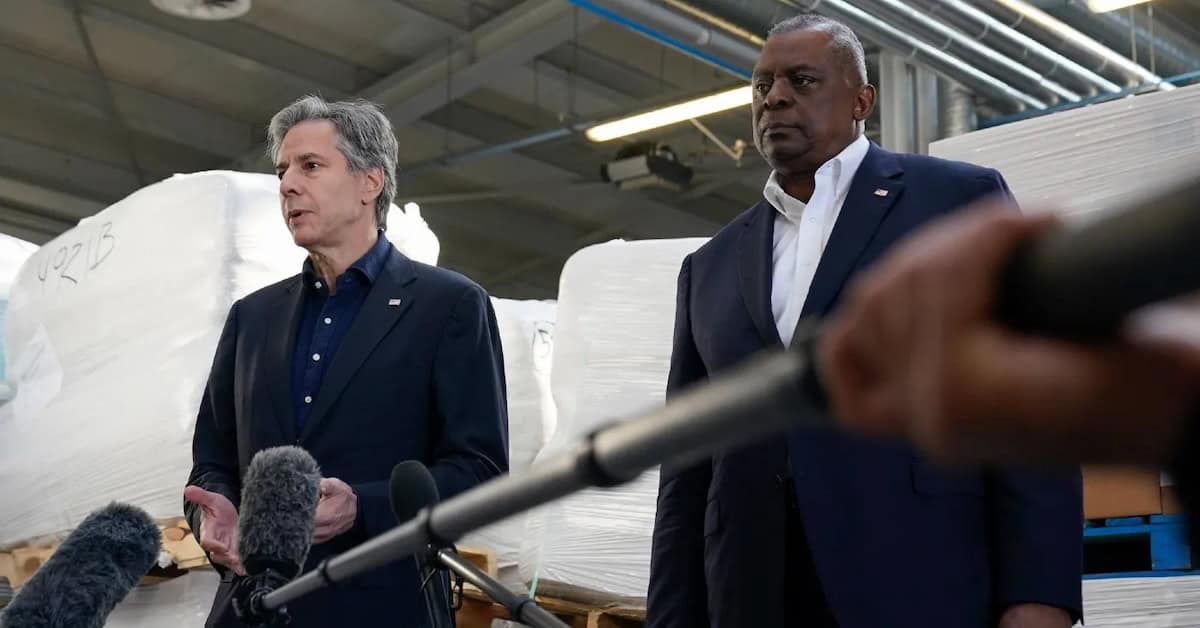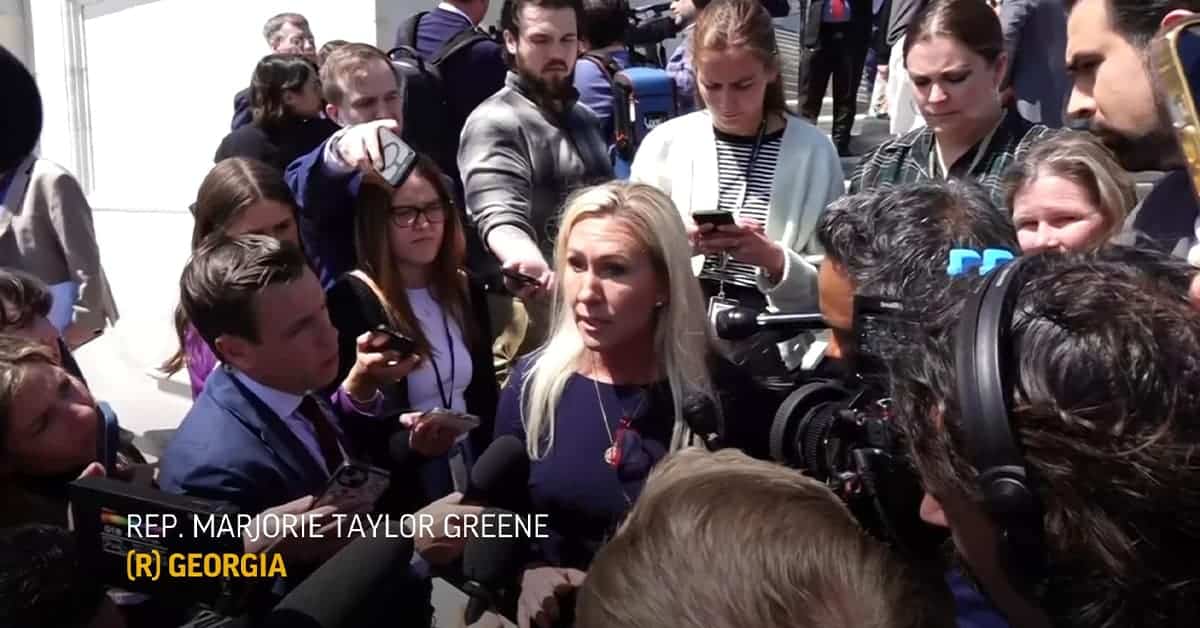Controversy, intent, legalities, and fear are only some of the ghosts this Bill will endure as it makes its way through the political channels.
Under the 193rd General Court of the Commonwealth of Massachusetts, Bill HD.3822 is an act to establish the Massachusetts Incarcerated Individual Bone Marrow and Organ Donation Program.
Massachusetts Democrats and Cosponsors, Carlos Gonzalez-10th Hampden District, Judith A. Garcia-11th Suffolk District, Bud L. Williams-11th Hampden District, and Russell E. Holmes-6th Suffolk district proposed Bill HD.3822 – https://malegislature.gov/BIlls/193/HD3822.
For those who may be wondering if this is another way for prisons to make money, think again, it is illegal in the United States for prisons to receive any kind of monetary or commission payouts to the Department of Corrections for organs or bone marrow donated by inmates.
S.2048-National Organ Transplant Act, 98th Congress (1983-1984) https://www.congress.gov/bill/98th-congress/senate-bill/2048
This program would allow incarcerated inmates to have reduced sentencing from 60 days to one full year by donating organs or bone marrow. Of course, there are a series of standards of eligibility involved in the process of determining the donations.

To date, there are about 100,000 Americans awaiting transplants, and an average of 6,000 who die while waiting on the list. Since there is such a shortage of healthy organs in the U.S., Bill HD.3822 will bring benefit to those in need as it increases the organ donor base.
It goes without saying that the donation of any organ is a selfless act. There are still concerns for complications, not to mention pain during the healing process, especially after procedures involving the liver, kidney, or bone marrow. Yet, no risk, no reward; there is always a price for freedom, and in the case of inmates, 60 days to one full year is a great trade-off.
Another issue involved with concern is the fact that many inmates don’t remember or won’t offer an honest and transparent medical history when being evaluated; and what about their mental health issues?
Jesse White, the policy director for the Prisoners’ Legal Services of Massachusetts, told McClatchy News in a statement that “PLS is in touch with the bill sponsors and is cognizant of the significant problem they have identified — racial inequity in our health system that has left BIPOC communities disproportionately impacted by organ and marrow shortages. However, we are concerned regarding the potential for coercion and the impact of inadequate medical care in carceral settings. We believe the solution must target the underlying structural problems leading to health disparities, including ongoing needless incarceration of so many who could live freely and safely in our communities.”
In addition to its ethical dubiousness, the Bill might violate federal law. The National Organ Transplant Act, passed in 1984, criminalizes giving or receiving any human organs for “valuable consideration.”
Medical ethicists contend the program, as proposed, would put a literal price on freedom and, even while voluntary, would prove inherently coercive in practice. “It’s a quid pro quo,” said George Annas, chair of the department of health law, bioethics, and human rights at Boston University’s School of Public Health. “That’s what makes it problematic.”
The overall consensus is twofold.
1 There is concern for the vulnerable recipients of the donated organs as well as the health of the incarcerated facilitators.
2 There is speculation and concern that the thought and appearance of a “Prison Industrial Complex” is working in coercion with the political establishment in exchange for organ donations in exchange for lesser sentences of incarcerated inmates.
Bill HD.3822 could set a new culture across all 50 states regarding new laws for Prison Organ Donations; it will prove most interesting to witness the outcome as there is definitely a crisis in the supply and demand for healthy organs.
So what do you think? Good idea to let prisoners receive reduced sentences by donating their organs, or bad idea?








